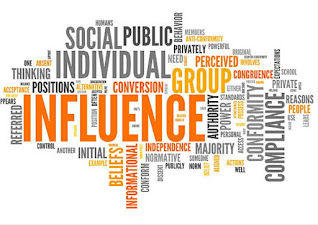MUTUAL AID; REDUCE THE COST OF BEING A GIVER
Introduction
Among my favorite books I have read this month is Joyce Meyer’s Attitudes of the mind. It’s a religious approach on how we can all change our outlook and even our lives. In this book Meyer notes that relationships (every relationship) are built on things that we do for each other, the everybody wins attitude that I captured in my previous article “Give and take” some of us either knowingly or unknowingly want things done for us every time and then we wonder why people don’t like us or why we have fewer friends. Mutual aid is a key ethical skill that most givers and takers should all have. This article may take you one step closer to achieving that.
1. Under-promise, over-deliver
Limit
your promises even if you trust your ability to help, certainty is the enemy of
growth, nothing is certain until it has happened, and even so, it’s still
debatable. When it comes to delivery do more than what they expected or you
promised. A perfect example is politicians, most of them promise us heaven that
we end up not getting there. What if they limited their promises? Guess we
wouldn’t vote for them that’s why they make empty promises every election
period. Don’t strive to impress while making the promise instead impress while
delivering the promise.
2. Be honest
Someone
said always tell the truth so that you won’t have to remember what you said,
they were correct. The pain of honest confrontation is what makes our social
lives better. Honesty might be a bitter pill to swallow but it's still an
effective cure. For instance, don’t act rich until a friend is asking you for
help and you turn them down or because you still want to put up the show
promise to help them as soon as you get money. Such a lie will keep you in
debt, personally, I can’t manage the guilt when one week later I haven’t
fulfilled my promise. But when you’re honest, those people around you know what
kind of favors to ask from you, they have the right idea to what extend you help
therefore not making demands they know you can’t meet.
You
can simply say, “I wish I could help James but I don’t have money at the moment
and am not expecting any money anytime soon” James will borrow from someone else and
if he is a good friend he will understand.
Rather than promising blindly, “I don’t have
anything for now maybe next week if I get some money” what if things don’t go
my way next week? James might as well think am a liar or selfish and he has
every right to think so.
3.Set boundaries.
It’s a component of being honest, let people know what you’re willing to share, what you’re not, and what is negotiable. It might be tough but a better way to avoid social conflicts and being called selfish one. Let them know why you can or can’t help and to what extent you can help. The problem is we assume they will use their common sense to know they’ve been helped so much but it turns out most will not. According to Dr. Henry Cloud and Dr. John Townsend in their book, BOUNDARIES When to Say YES When to Say NO To Take Control of Your Life, Boundaries define us. They define what is you and what is not you. A boundary shows you where you end and someone else begins. While boundaries in the physical world may be easier to see, perimeter walls around properties, No trespass signs, fences, etc. in our interaction with people around us and those we love it takes some personal effort to discover them.
4. Pass the skill
Help
those who depend on you master the skill. There might be pride in being the
only one who knows how to do something but the pride comes with some
disadvantages. Picture this, among my ten plus friends am the only one who knows
how to type, so one day James wants me to help him type his assignment but am
preparing for my anatomy test. Of course, I’ll say No, anatomy being a tough
area of study I need lots of time to study meaning if I help him type I’ll be
encroaching into my study time. James will think am self-centered. Now imagine
this, instead of typing for them I create some time to teach a couple of them how
to type, next time they want to type and am busy I won’t have to encroach on my
personal time to meet their demands, sounds fair to me.
5. Do your part you can’t
help everyone.
It’s
sad but true. You can’t help everyone do what you can manage and hope that the ones
you’ve helped will be kind enough to help others and make the world a better place.
Helping others comes from the heart and should not be a big deal if it really
comes from your heart, for instance, the example in four above I cannot teach
all my friends how to type that will take a lot of time from my side starving
my attention to other things I have to take care of, all I can do is teach
James and Ken, then expect or hope Ken and James will teach Tyrus and Brenda who
in turn, will pass to Emmanuel and Viona and the list continues. All I can be
proud of and take credit for is having initiated the whole process.






Comments